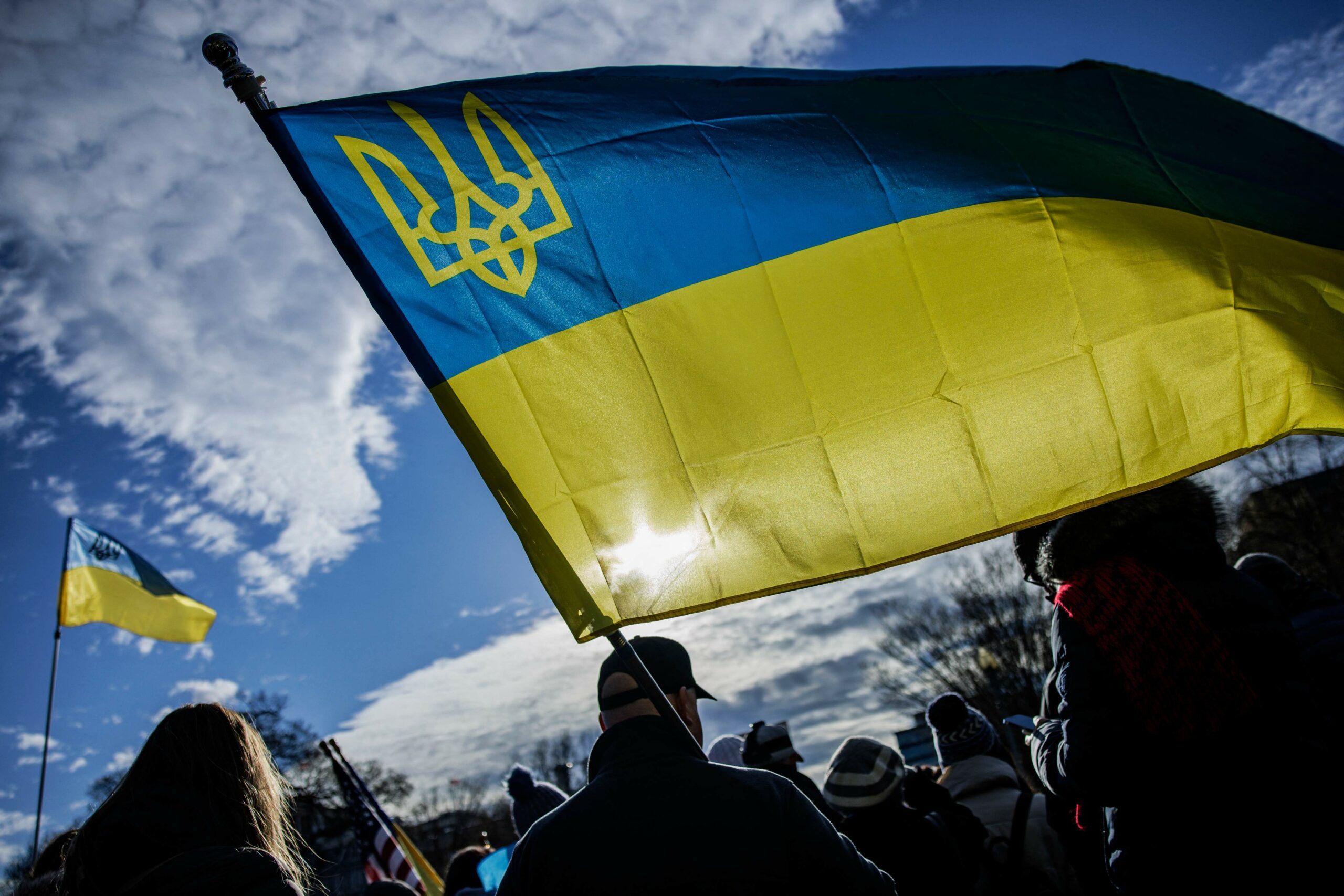In the period from 1991 and 2014, Russia and Ukraine signed at least 400 diplomatic agreements in various spheres, from defence and security to trade and tourism. However, after the annexation of Crimea and the outbreak of war in Donbass, both countries began to review the ‘diplomatic legacy’ underlying their relations. No new treaties have been concluded since then, while old ones have been cancelled by the dozen. This trend intensified with the onset of Russia’s full-scale invasion of Ukraine in 2022. It was Russia that initiated the termination of the agreements: it denounced five agreements with Ukraine in 2008−2014, and another two in 2022−2023. Ukraine commenced this process later, but with a significant numerical advantage on its side: it denounced at least 124 agreements between 2014 and 2023.
Agreements terminated in 2014−2018 had provided both sides with benefits in security and trade. From 2018 onwards, the countries began to cancel agreements concerning ‘civilian’ areas such as tourism and youth policy, while 2022 marked the beginning of a large-scale revision of the entire set of agreements signed between Russia and Ukraine. The very act of termination of an agreement may play a certain symbolic role: by doing so, the parties demonstrate their mutual distance and the severing of existing ties.
The discontinuation of agreements is unlikely to have a direct impact on the course of the 2022−2023 military and political confrontation. However, along with ongoing decommunisation and de-Russianisation, Ukraine’s denunciation of the agreements contributes to a symbolic ‘separation’ from Russia and its legacy, including the diplomatic ties.
Building the core framework of relations (1990−2014)
The first bilateral agreement was the Treaty between the Ukrainian Soviet Socialist Republic (SSR) and the Russian Soviet Federative Socialist Republic (RSFSR), signed on 19 November 1990 by Leonid Kravchuk, the then Chairman of the Supreme Council of the Ukrainian SSR, and Boris Yeltsin, Chairman of the Russian Supreme Council at the time. During the decade following the collapse of the USSR (1991−1999), dozens of agreements were signed, establishing a regime of cooperation between Russia and Ukraine in areas such as the economy, energy, culture and science, as well as in the military sphere.
In 1992, a total of 107 diplomatic documents were formalised, followed by 139 in 1993. Dozens of new agreements were adopted in subsequent years. The number of agreements themselves could not necessarily emphasise the success of interaction: some projects were successfully completed while others failed. At the same time, the relations between the two countries were not completely unproblematic. There were some contentious issues, including the division of the Black Sea Fleet, the repayment of Soviet foreign debt and the redistribution of assets, as well as the transit of energy resources. However, ways of interaction were outlined and an institutional framework for their implementation was formed, i.e. agreements between the two countries that regulated cooperation in various areas.
While causing serious friction in Russia-Ukraine relations, the 2004 revolution in Ukraine did not entail a revision of the entire existing system of mutual relations. There were indeed some problematic issues, such as the idea of Ukraine’s entry into NATO, its support for Georgia in the five-day war of 2008, and the ‘gas wars’ in 2005−2009. However, at the same time, the parties continued to enter into new agreements: for example, they signed a protocol between the Ukrainian and Russian border guards on operational and investigative activities as well as a protocol on cooperation between Ukratomprom and Rosatom. In 2008, the Treaty on Friendship, Cooperation and Partnership between the two countries was extended for ten years. Moreover, during Yushchenko’s presidency (2005−2010), the foreign trade turnover of the two countries more than doubled: from USD 20.2bn in 2005 to USD 41.5bn in 2010. While the presence of such significant growth did not erase the existing political problems, it nevertheless served as an indicator of the parties’ interest in continuing mutual cooperation.
Conflict and the beginning of a renegotiation of relations (2008−2014)
The revision of mutual relations was initiated by Russia. In January 2008, the State Duma of Russia denounced the bilateral agreement ‘On means of missile warning and space control systems’. Previously, the Mukachevo and Sevastopol radiolocation stations on the territory of Ukraine had been used jointly by the two countries, also to ensure the security of Russian airspace. According to Russian media reports, the reason for the denunciation at the time was ‘the Ukrainian side’s self-exclusion from fulfilling its obligations’. One way or another, the denunciation of the agreement in 2008 was the first step, which was followed by much more serious steps, taken already in 2014. The 2008−2014 period in the relations between the two countries was by no means smooth: there were gas-related conflicts, disagreements over the 2008 war in Georgia and a number of other controversial issues.
The change of power in Ukraine as a result of Euromaidan did not entail an immediate cancellation of agreements with Russia. In fact, it was Moscow that took the first step: on 2 April 2014, Vladimir Putin signed a law entitled ‘On the termination of agreements concerning the stay of the Black Sea Fleet of the Russian Federation on the territory of Ukraine’.
The law provided for the denunciation of four agreements:
- Agreement between the Russian Federation and Ukraine on the parameters of the division of the Black Sea Fleet, signed in Kyiv on 28 May 1997;
- Agreement between the Russian Federation and Ukraine on the status and conditions for the stay of the Black Sea Fleet of the Russian Federation on the territory of Ukraine, signed in Kyiv on 28 May 1997;
- Agreement between the Government of the Russian Federation and the Government of Ukraine on mutual settlements related to the division of the Black Sea Fleet and the stay of the Black Sea Fleet of the Russian Federation on the territory of Ukraine, signed in Kyiv on 28 May 1997; and
- Agreement between the Russian Federation and Ukraine on the issues of the stay of the Black Sea Fleet of the Russian Federation on the territory of Ukraine, signed in Kharkiv on 21 April 2010.
The Ukrainian side declared Russia’s denunciation of the agreements to be illegal. In response to the steps taken by the Russian Constitutional Court, which recognised Crimea’s annexation to Russia, the Constitutional Court of Ukraine withdrew from the Memorandum of Cooperation between the two judicial instances. Moreover, in October 2014, Prime Minister Arseniy Yatsenyuk signed a decree denouncing the agreement ‘On joint actions to organise the construction of the Kerch Strait transport crossing’ (signed in 2013).
The year 2014 became crucial in diplomatic relations between Russia and Ukraine. Subsequently, the countries no longer thought about signing new agreements, and only focused on dismantling the existing ones.
Ukraine continues a revision (2015−2021)
Until 2014, the relations between the two countries in the security sphere and military industry were fairly close. Ukraine was first to revise this particular component of mutual relations. On 21 May 2015, the Verkhovna Rada denounced five agreements with Russia:
- ‘On Mutual protection of classified information’;
- ‘On military cooperation‘;
- ‘On the organisation of military interstate transport and related payments’;
- ‘On the transit through the territory of Ukraine of military formations of the Russian Federation temporarily stationed on the territory of the Republic of Moldova’;
- ‘On cooperation in the field of military intelligence’.
The authors of the denunciation law noted that it was impossible to continue cooperation with Moscow under these agreements because «the Russian Federation is carrying out armed aggression against Ukraine, together with illegal military occupation, organisation of armed separatism and terrorism on the territory of Ukraine.»
In the same year, revision covered the agreements concerning the economy and energy sector: the ‘Free Trade Agreement‘ and the ‘Agreement on cooperation in the construction of power units 3 and 4 of the Khmelnitsky Nuclear Power Plant’ were terminated.
In addition to restricting the cooperation regime in security and trade, Ukraine cancelled a number of agreements regulating interstate cooperation. In 2016, cooperation in television and radio broadcasting and youth policy was terminated. In 2017, the agreement between the border guards of the two countries on cooperation in operational and investigative activities was denounced. In 2018, cooperation between the Ministries of Justice of Russia and Ukraine was discontinued, while the exchange of legal information was put to an end in 2019.
Finally, the ‘Treaty on Friendship, Cooperation and Partnership’ signed back in 1997 was denounced in 2019. During Petro Poroshenko’s presidency (June 2014 till May 2019), a total of 30 bilateral agreements with Russia were terminated.
The election of President Volodymyr Zelensky did not change the overall trend: Ukraine continued revising and denouncing agreements with Russia. For instance, in 2020, two documents were terminated: the ‘Memorandum on cooperation in combating terrorism’ and the ‘Agreement on mutual establishment of trade representations’. Furthermore, the Ukrainian side denounced the agreement on cooperation in the field of tourism in 2021.
Termination and denunciation of ‘civil’ agreements (2022−2023)
On the day when the full-scale invasion began, Ukraine severed diplomatic relations with Russia, but this step alone could not lead to immediate termination of all agreements. However, since 24 February 2022, the Ukrainian government commenced a systematic revision of all agreements previously concluded with Russia.
For instance, in May 2022, the speaker of the Verkhovna Rada Ruslan Stefanchuk said that work was being carried out together with the Cabinet of Ministers of Ukraine to ‘de-Russianise and de-Belarusianise’ previously signed agreements. In his opinion, the economic agreements should all be cancelled without exceptions, while the agreements related to human rights should be retained in order to protect Ukrainian citizens.
As of September 2023, as part of the ‘de-Russianisation’ of diplomatic agreements, Ukraine denounced 86 agreements, i.e. more than the number of agreements terminated during the entire previous period of mutual relations. Examples of cancelled documents included:
- Agreement on labour activity and social protection of citizens of Ukraine and Russia working beyond the borders of their countries,
- Agreement on mutual recognition and equivalence of documents on education and academic titles,
- Agreement on the coordination of railway transport activities,
- Agreement on cooperation in the field of plant quarantine,
- Agreement on cooperation in preventing the spread of AIDS.
The question of whether the denunciation of these agreements will have an effect on the course of the military-political confrontation cannot be answered unambiguously. On the one hand, the most important and ‘sensitive’ agreements between the two countries were cancelled already in 2015−2019, and subsequent cancellations concerned ‘civilian’ sectors such as health care and education. At the same time, the mass denunciation of agreements with Russia can be seen as part of a sequence of other actions taken by Ukraine, aimed at reducing Russian influence in the country. For instance, in addition to steps towards continued policy of decommunisation, measures were taken in 2022−2023 to ‘de-Russianise’ and ‘decolonise’ various spheres of public life, including toponymy (see the relevant law). In this context, the ‘de‑Russianisation’ of diplomatic heritage is also noteworthy. By terminating the previously signed agreements, Ukraine has been trying to distance itself from Russia in a symbolic sense and to have no links with Russia.
Conclusion
Between 1991 and 2014, Russia and Ukraine developed an extensive system of relations, creating opportunities for cooperation in various areas, from defence to tourism. No new agreements were signed starting from 2014. Crimea and Donbass marked the beginning of an era of revision and cooling-off in mutual relations. At that time, cooperation in the most sensitive areas, such as defence and security, began to dwindle. In subsequent years, Ukraine consistently reduced the range of Russia’s privileges and rights in bilateral relations, terminating economic and political agreements.
After Russia launched a full-scale invasion of Ukraine in 2022, a new trend emerged: Ukraine started ‘de-Russianising’ the entire set of Russian-Ukrainian agreements. Dozens of agreements affecting ‘civilian’ spheres such as education and health care were terminated. In fact, these measures may be more symbolic than practical, emphasising Ukraine’s ‘liberation from Russian influence’.
A total of at least 400 diplomatic agreements of various status (protocols, treaties, intergovernmental agreements, joint statements) were signed between Russia and Ukraine between 1991 and 2014. Of this number, at least 60 agreements became invalid upon expiry, and at least 130 were denounced by Russia and Ukraine.
The documents which currently remain in force are highly varied. For example, the ‘Protocol between the Ministry of Defence of the Russian Federation and the Ministry of Defence of Ukraine on military cooperation’, signed back in 1997, is still in force. Likewise, the ‘Agreement on cooperation in the sphere of family policy and gender equality’ has remained valid. Most likely, these agreements may also be revised in future and terminated by Ukraine, especially since their implementation is simply impossible in the context of military confrontation.
These processes can only be stopped or reoriented if Russia ends its military aggression and if the two countries embark on a journey towards peaceful coexistence. But even then, the resumption of cooperation with Russia will be an extremely problematic and complicated topic in Ukrainian politics considering how it has evolved since 2014.










